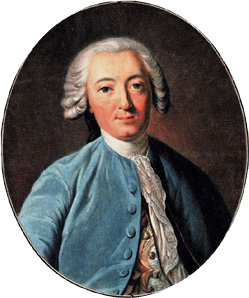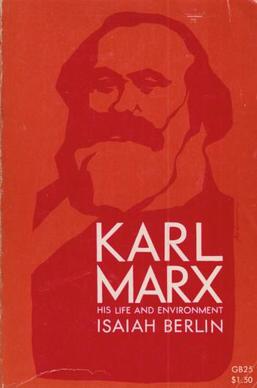
Romanticism was an artistic and intellectual movement that originated in Europe towards the end of the 18th century. In most parts of Europe, it was at its peak from approximately 1800 to 1850. Romanticism was characterized by its emphasis on emotion and individualism, clandestine literature, and paganism. Romantic thinkers idealized nature, were often suspicious of industrialization and rationalism, and frequently glorified the Middle Ages by depicting them in moralistic, idealized forms. Romanticism was partly a reaction to the Industrial Revolution, and the prevailing ideology of the Age of Enlightenment, especially the scientific rationalization of Nature. It was embodied most strongly in the visual arts, music, and literature; it also had a major impact on historiography, education, chess, social sciences, and the natural sciences. It had a significant and complex effect on politics: Romantic thinking influenced conservatism, liberalism, radicalism, and nationalism.

Sir Isaiah Berlin was a Russian-British social and political theorist, philosopher, and historian of ideas. Although he became increasingly averse to writing for publication, his improvised lectures and talks were sometimes recorded and transcribed, and many of his spoken words were converted into published essays and books, both by himself and by others, especially his principal editor from 1974, Henry Hardy.

Giambattista Vico was an Italian philosopher, rhetorician, historian, and jurist during the Italian Enlightenment. He criticized the expansion and development of modern rationalism, finding Cartesian analysis and other types of reductionism impractical to human life, and he was an apologist for classical antiquity and the Renaissance humanities, in addition to being the first expositor of the fundamentals of social science and of semiotics. He is recognised as one of the first Counter-Enlightenment figures in history.

Claude Adrien Helvétius was a French philosopher, freemason and littérateur.

Joseph Marie, comte de Maistre was a Savoyard philosopher, writer, lawyer, and diplomat who advocated social hierarchy and monarchy in the period immediately following the French Revolution. Despite his close personal and intellectual ties with France, Maistre was throughout his life a subject of the Kingdom of Sardinia, which he served as a member of the Savoy Senate (1787–1792), ambassador to Russia (1803–1817), and minister of state to the court in Turin (1817–1821).

Johann Georg Hamann was a German Lutheran philosopher from Königsberg known as "the Wizard of the North" who was one of the leader figures of post-Kantian philosophy. His work was used by his student J. G. Herder as the main support of the Sturm und Drang movement, and is associated with the Counter-Enlightenment and Romanticism.

Johann Gottfried von Herder was a German philosopher, theologian, poet, and literary critic. He is associated with the Enlightenment, Sturm und Drang, and Weimar Classicism.
The Counter-Enlightenment refers to a loose collection of intellectual stances that arose during the European Enlightenment in opposition to its mainstream attitudes and ideals. The Counter-Enlightenment is generally seen to have continued from the 18th century into the early 19th century, especially with the rise of Romanticism. Its thinkers did not necessarily agree to a set of counter-doctrines but instead each challenged specific elements of Enlightenment thinking, such as the belief in progress, the rationality of all humans, liberal democracy, and the increasing secularisation of society.

Zeev Sternhell was an Israeli historian, political scientist, commentator on the Israeli–Palestinian conflict, and writer. He was one of the world's leading theorists of the phenomenon of fascism. Sternhell headed the Department of Political Science at the Hebrew University of Jerusalem and wrote for Haaretz newspaper.

Henry Robert Dugdale Hardy is a British academic, author and editor.
In ethics, value pluralism is the idea that there are several values which may be equally correct and fundamental, and yet in conflict with each other. In addition, value-pluralism postulates that in many cases, such incompatible values may be incommensurable, in the sense that there is no objective ordering of them in terms of importance. Value pluralism is opposed to value monism.

Friedrich Meinecke was a German historian, with national liberal and antisemitic views, who supported the Nazi invasion of Poland. After World War II, as a representative of an older tradition, he criticized the Nazi regime, but continued to express antisemitic prejudices.
Thomas Blackwell the younger was a classical scholar, historian and "one of the major figures in the Scottish Enlightenment."

The term Cartesian linguistics was coined by Noam Chomsky in his book Cartesian Linguistics: A Chapter in the History of Rationalist Thought (1966). The adjective "Cartesian" pertains to René Descartes, a prominent 17th-century philosopher. As well as Descartes, Chomsky surveys other examples of rationalist thought in 17th-century linguistics, in particular the Port-Royal Grammar (1660), which foreshadows some of his own ideas concerning universal grammar.
Mark Lilla is an American political scientist, historian of ideas, journalist, and professor of humanities at Columbia University in New York City. A self-described liberal, he frequently, though not always, presents views from that perspective.
Christian Tobias Damm was a renowned German Classical philologist, and the less than orthodox theologian who was rector (1730) and prorector (1742) of the Köllnische Gymnasium, the oldest in Berlin, but prematurely pensioned off in 1766, in the wake of scandalized accusations of trends towards Socianian doctrines in some of his work, to his lasting bitterness.

The New Science is the major work of Italian philosopher Giambattista Vico. It was first published in 1725 to little success, but has gone on to be highly regarded and influential in the philosophy of history, sociology, and anthropology. The central concepts were highly original and prefigured the Age of Enlightenment.

Karl Marx: His Life and Environment is a 1939 biography of the philosopher Karl Marx by the historian of ideas Isaiah Berlin.

Against the Current: Essays in the History of Ideas (1979) is a collection of essays by the 20th-century philosopher and historian Isaiah Berlin.
Fascist syndicalism was a trade syndicate movement that rose out of the pre-World War II provenance of the revolutionary syndicalism movement led mostly by Edmondo Rossoni, Sergio Panunzio, A. O. Olivetti, Michele Bianchi, Alceste De Ambris, Paolo Orano, Massimo Rocca, and Guido Pighetti, under the influence of Georges Sorel, who was considered the "'metaphysician' of syndicalism". The Fascist Syndicalists differed from other forms of fascism in that they generally favored class struggle, worker-controlled factories and hostility to industrialists, which lead historians to portray them as "leftist fascist idealists" who "differed radically from right fascists." Generally considered one of the more radical Fascist syndicalists in Italy, Rossoni was the "leading exponent of fascist syndicalism"., and sought to infuse nationalism with "class struggle".














